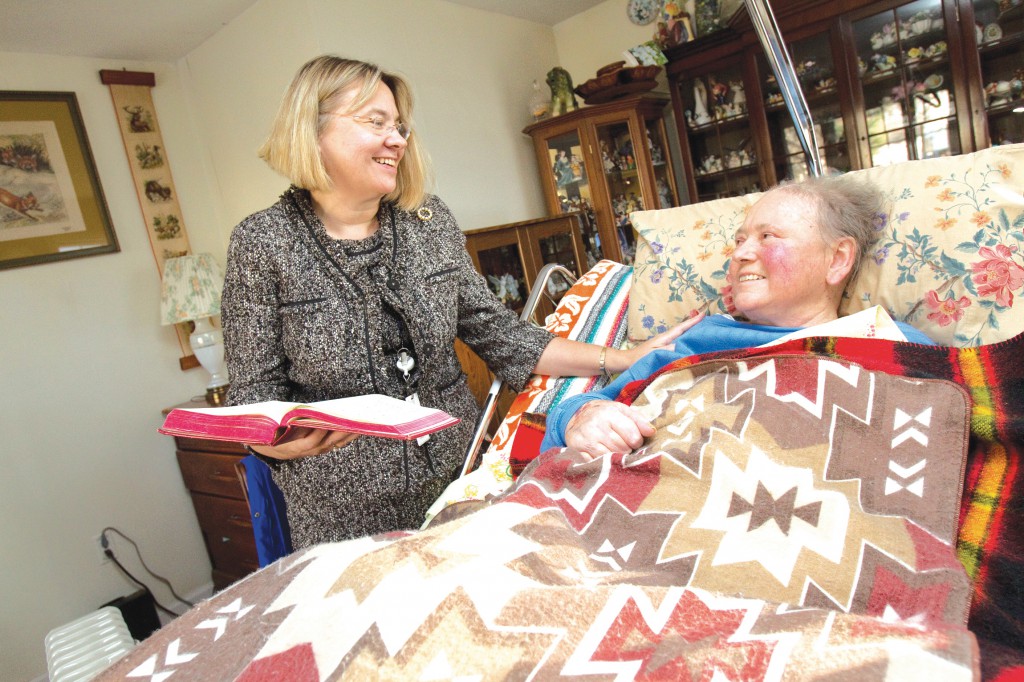
THE GREENS’ latest attempt to legalise euthanasia in Australia is based on the opinions of medical professionals who do not deal with patients suffering from terminal diseases, according to Catholic geriatrician John Obeid.
Greens Senator Richard Di Natale introduced the bill in Federal Parliament last month. The proposed legislation would make it legal for doctors to prescribe and administer a substance to end life.
In presenting the bill, Senator Di Natale cited surveys showing public support for euthanasia, but Dr Obeid said patients and doctors dealing with terminally ill patients strongly oppose it.
“Doctors have always shunned away from [euthanasia] over many thousands of years,” he said.
“It’s a practice that many medical professionals, particularly those who deal with the people who this will actually affect – geriatricians and palliative care specialists – have grave concerns about.
“We’re concerned that it will lead to abuses, that it will lead to inappropriate care and treatment for these people, and that they may well miss out on what we know will actually benefit them, which is palliative care.”
Dr Obeid, a fellow of the Royal Australian College of Physicians who has specialised in geriatrics for the past 18 years, said euthanasia goes against the principles of providing good medical care.
“What we were always taught in our training is that you find out what’s wrong with the patient, you take a careful history, and you use your best skills and abilities to diagnose and then to relieve the suffering of the person,” he said.
“Euthanasia doesn’t do that, it just puts someone in a corner and shoots them up with a toxic drug that’s going to kill them.”
Individuals suffering from terminal illnesses who resort to euthanasia are often misinformed or suffering from depression, Dr Obeid said.
“Many of them are unaware that palliative care is usually successful at managing their distressing symptoms, and once depression is treated or adequate access to palliative care is achieved, very few people who are in the terminal phase actually want euthanasia, that’s my experience,” he said.
The NSW-based doctor said with the modern advances in medical and palliative care, euthanasia should be considered an out-dated idea.
“As time goes on, there is a diminishing need for euthanasia, if there ever was one, and yet now there’s a ramping up in the political pressure for it, and one really has to question why that is,” he said. “In the past, people understood that euthanasia was bad medical care, even when we didn’t have access to good palliative care or medications in those days.”
Under the legislation, the provision of a “dying with dignity medical service” would be paid for by the Federal Government.
Dr Obeid said such an arrangement was “grotesque”.
“It has never happened before that doctors have been paid for life-ending services and now the theory is that a doctor will be paid to actually kill someone,” he said. “For adult people, it’s never happened before in the whole history of humanity.”
Liberal MP Peter Abetz, who has dealt with many people in the final stages of life in his role as a pastor and while working in palliative care, told The Record the biggest problem with so-called voluntary euthanasia is that it never remains voluntary for long.
“In The Netherlands, surveys of seniors reveal that their greatest fear is a nurse or doctor deciding that their quality of life is such that they will bump them off,” he said. “And it is not unfounded, as many nurses and doctors in The Netherlands candidly admit to terminating someone’s life without permission.”
Fellow parliamentarian Nick Goiran agreed, adding that the legalisation of voluntary euthanasia can commence a slippery slope.
“The single biggest reason why attempts around the globe to legalise doctor-prescribed suicide consistently fail is because it is a legal impossibility to protect against involuntary euthanasia once voluntary euthanasia is legalised,” he said.
Dr Obeid said euthanasia has been repeatedly condemned by the Australian Medical Association and the World Medical Association.